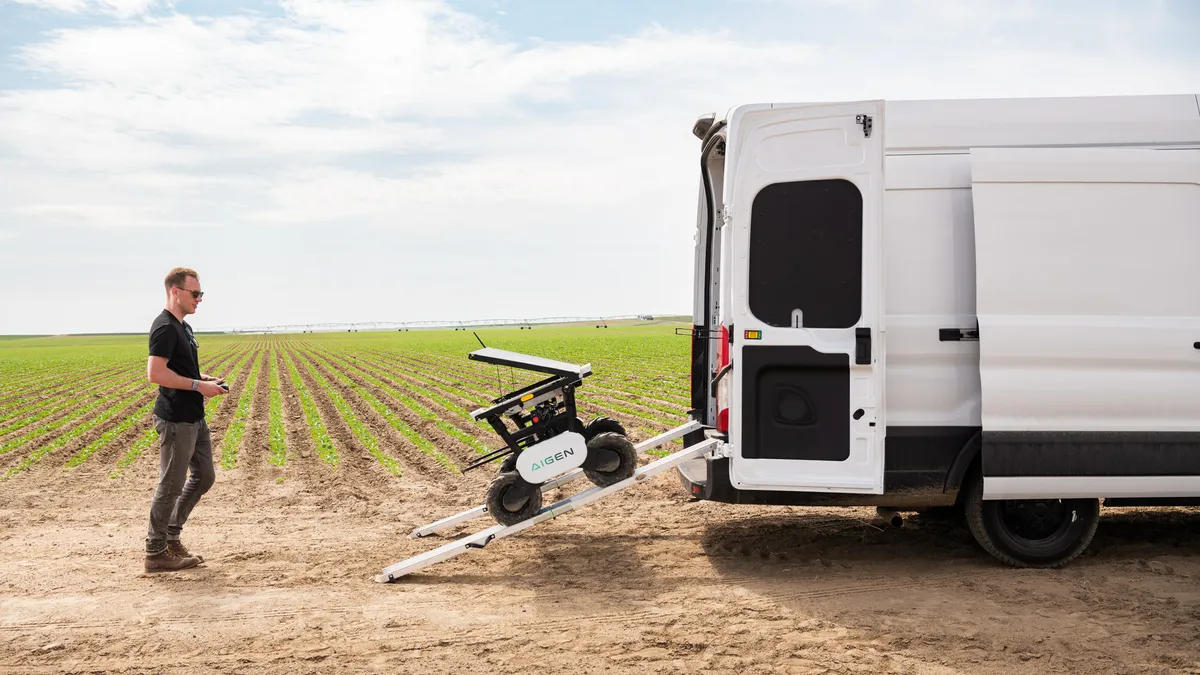Dive Brief:
-
Seattle-based tech startup Aigen has introduced a renewable-powered autonomous robot that assists row crop farmers with weeding duties, while reducing their costs and environmental footprint.
-
The Aigen Element, which looks like a solar panel on four rugged wheels, is able to navigate and weed row crops for more than 14 hours a day in most weather conditions. The device runs on wind and solar energy, and transmits real-time data to farmers via mobile app.
-
Founded by a former Tesla engineer and Proofpoint product lead, Aigen is expected to debut on more than 20,000 acres of farmland next year. Earlier this year, the company said Aigen Element preorders for 2024 and 2025 sold out in one day.
Dive Insight:
As rising input costs and climate change worsens, farmers are adopting newer technologies such as drones and geospatial devices to monitor crops and boost yields.
Rich Wurden and Kenny Lee, formerly of Tesla and Proofpoint, respectively, founded Aigen in 2020 with the goal of connecting farmers to innovative technologies that can reduce farmers’ workload and their reliance on fossil fuels. After working with farmers in Minnesota, their first venture into the growing precision agriculture space is an autonomous robot for rowcroppers.
“Farmers tell us again and again that weeds are the number one problem they face. So, that's where we're starting: developing a solution for farmers to immediately reduce their costs and get rid of weeds, all while growing healthier crops,” Lee, Aigen’s co-founder and CEO, said in a statement.
The robots, which sport a lightweight frame, solar panel, regenerative motors and rugged suspension, navigate the fields and weed crops for hours on end, as well as record real-time field and crop data.
The technology comes as farmers look for more effective ways to tend their fields. About 900 million pounds of herbicide are used each year for farming in the U.S., according to Aigen. Costs are expected to exceed more than $100 per acre in the next few years.
According to the U.S. Department of Agriculture, newer technologies have increased crop yields, reduced costs and improved farmer decision-making. While upfront costs can be challenging, the agency said the benefits for early adopters are plentiful.











